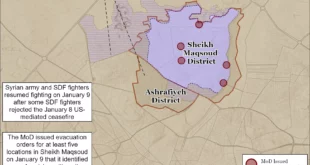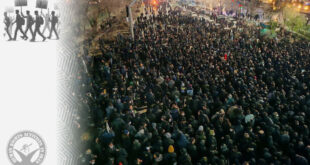BAGHDAD (Reuters) – A senior Iraqi official on Thursday explicitly backed U.S. President-elect Barack Obama’s plans to withdraw combat troops from the country by mid-2010, Baghdad’s clearest endorsement yet of Obama’s exit strategy.
The outgoing administration of President George W. Bush presented Iraq with a “final text” of a pact accepting Baghdad’s demand that troops leave in three years, but Baghdad said it wanted more talks on questions that were still unresolved.
Asked to comment on Obama’s pledge to pull combat troops out within 16 months of taking office, National Security Adviser Mowaffaq al-Rubaie told Al-Arabiya television: “We think 16 months is good.”
Iraqi officials were reluctant to publicly endorse Obama’s plan while the campaign was under way. Obama’s opponent John McCain — and the Bush administration — opposed setting a timeline, although the administration relented in recent months.
“Obama’s presence at the head of the U.S. administration will give new blood, new thoughts and new plans. We want to be in a fundamental alliance with the United States,” Rubaie said.
The Bush administration has agreed to a 2011 withdrawal date in a draft security pact which would replace a U.N. mandate that expires at the end of this year.
The pact was held up last month when Baghdad asked for last-minute changes, and Washington delivered its reply on Thursday, declaring the negotiations over.
“We’ve gotten back to them with a final text. Through this step we have completed the process on the U.S. side,” U.S. embassy spokeswoman Susan Ziadeh said. “Iraq will now need to take it forward through their own process.”
GRUELLING TALKS
Her remarks appeared to close the door on any further talks on the pact, the subject of nearly a year of grueling negotiations. But Iraqi government spokesman Ali al-Dabbagh said more discussions were needed.
“They had some remarks on some of the amendments, which now requires meetings with the Americans to reach a common understanding,” he said, adding: “The mood is positive.”
Among issues needing further discussion was the question of when U.S. troops would be under Iraqi jurisdiction, Dabbagh said. The initial draft would let Iraqi courts try U.S. troops for crimes committed off duty, language Baghdad called vague.
Rubaie said Baghdad had proposed 110 changes, and Washington agreed to most of them, including language that would firm up the 2011 withdrawal deadline.
“Yes, they agreed on this amendment. The foreign military presence in Iraq will end in 2011,” he said.
In Washington, Pentagon spokesman Bryan Whitman said the latest text “respects both Iraqi sovereignty as well as provides for the necessary protections for our forces to operate.”
The pact needs approval from the Iraqi parliament, leaving little time for further negotiations before year-end.
Iraq has said it will seek an extension of the existing U.N. mandate if a final agreement cannot be reached in time, but both sides say they would much prefer a bilateral deal now.
The U.S. military announced that one of its 15 combat brigades in Iraq will go home this month instead of early next year, accelerating by six weeks a reduction to 14 brigades that Bush already announced in September.
Iraq has become far less violent over the past year, with the number of U.S. troops and Iraq civilians killed in attacks last month falling to their lowest levels of the war.
Iraqi officials say they are confident Obama will not jeopardize Iraq’s security by ordering a hasty withdrawal.
 Eurasia Press & News
Eurasia Press & News


